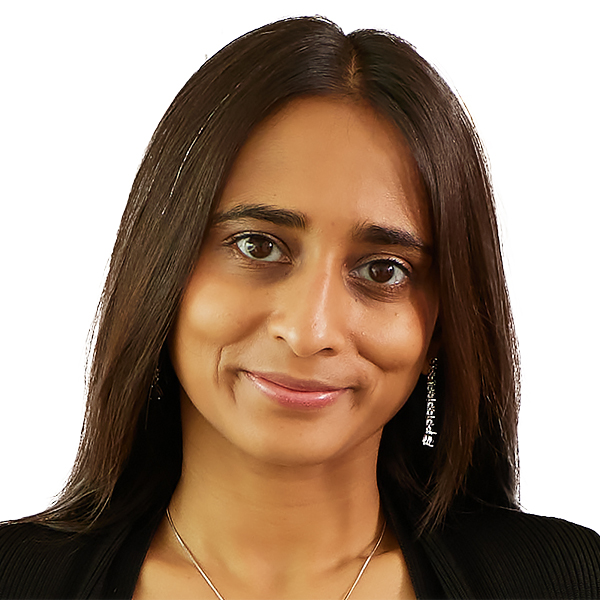Finding Coherence
by A.J. Kleber
As a social species, human lives revolve around our ability to communicate with one another, in significant part via spoken and written language. When that capacity is impaired by a stroke, the impact can be truly devastating; especially since the reacquisition of language is a difficult and complex process which varies widely between patients and based on many situational and external factors. Currently, it is almost impossible to provide such a patient, or PWA (Person With Aphasia) with an accurate, personalized prognosis. A multimodal approach is needed.
Professor Archana Venkataraman has built her research career around such complex neurological quandaries; her Neural Systems Analysis Laboratory (NSA Lab) develops AI algorithms and other machine learning tools and methodologies for the purpose of better understanding the workings of the human brain, and to assist in treating various disorders. Under the auspices of a $3.2M NIH R01 grant, she’s turning her expertise towards the challenging, long-term goal of identifying appropriate treatments and providing personalized course-of-recovery predictions for PWA. This work is in collaboration with Professor Swathi Kiran in the Sargent College of Health & Rehabilitation Sciences.
The project focuses on developing novel computational models to assist in better understanding the heterogeneous causes and contributing factors behind aphasia, as well as how the condition responds to varied clinical interventions and environmental influences across its diverse presentations and circumstances, using multimodal datasets which include neuroimaging and demographic data. A variety of machine learning-based methods will be used to analyze and compare this data to provide a clearer, more comprehensive overall picture of baseline functionality and treatment outcomes for post-stroke PWA, with quantifiable phases or stages, and relevant biomarkers. This has the potential to pave the way for game-changing predictive tools which can offer a clearer path for PWA by analyzing potential courses of treatment for a patient’s individual case and experiences, easing the recovery process.

Professor Archana Venkataraman joined the Boston University Department of Electrical and Computer Engineering in 2023. She is a Senior Member of IEEE, the recipient of several Best Paper Awards, and currently serves on the Editorial Board of Medical Image Analysis and as an Associate Editor for Frontiers in Neuroimaging – Analysis Methods. Her research has been funded by the NSF and NIH, including an NSF CAREER Award. Professor Venkataraman received her PhD from the Massachusetts Institute of Technology in 2012.
